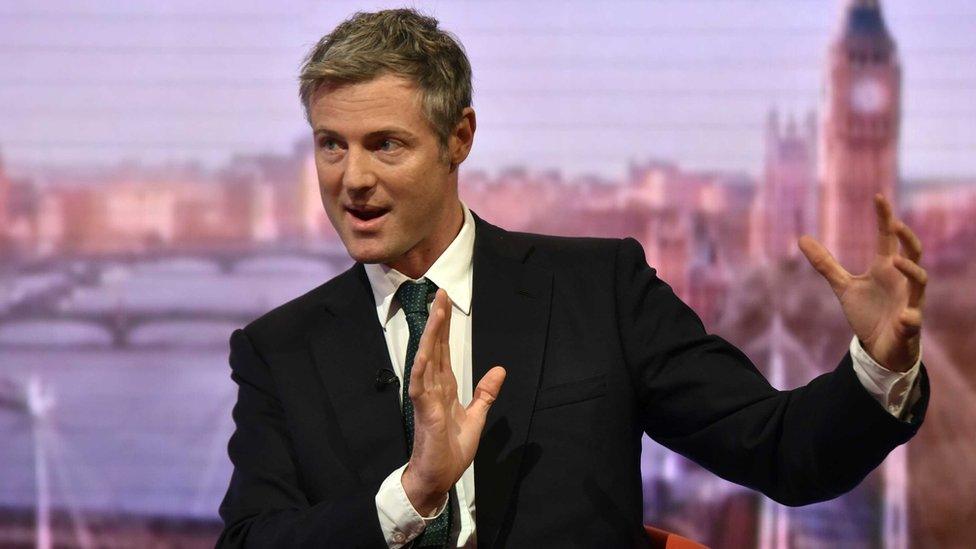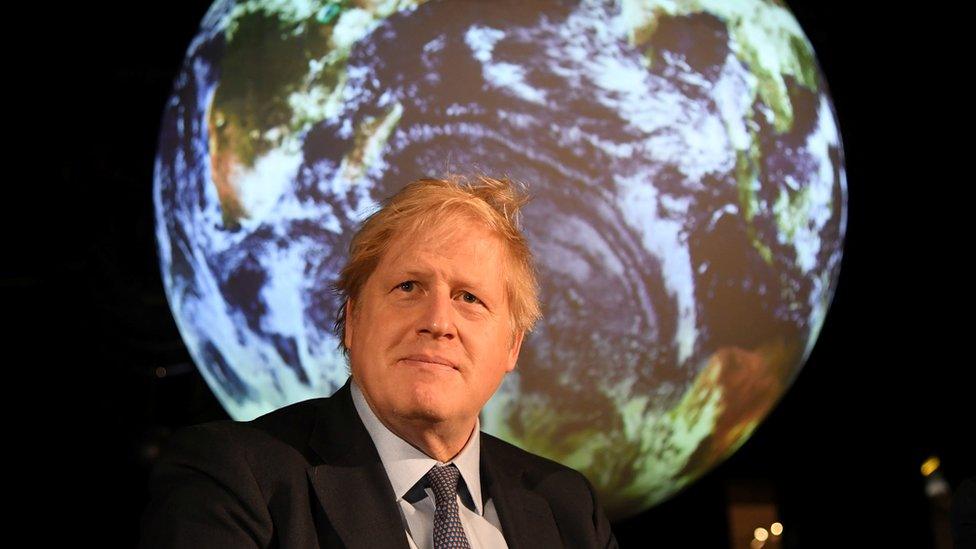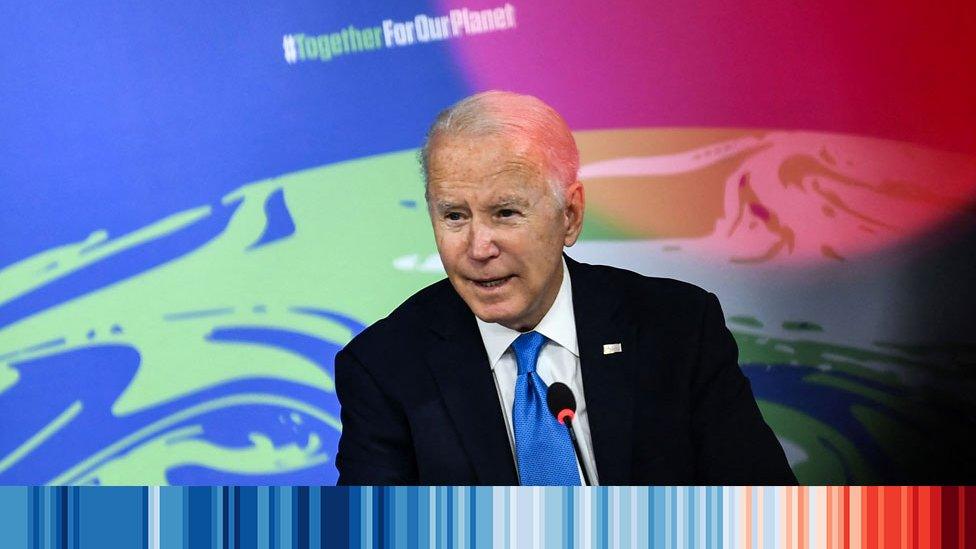COP26: Minister says summit must be a turning point
- Published

Environment Minister Zac Goldsmith has urged Conservative MPs to back the government's net zero carbon target following the publication of the UN report on climate change.
Lord Goldsmith has said today's report from the Intergovernmental Panel on Climate Change (IPCC) "makes appalling reading".
Its release comes less than three months before a key global climate summit in Glasgow known as COP26.
But a small group of rebel Tory MPs, led by Craig McKinlay, say they fear the costs of tackling climate change will harm poor families.
The environment minister told the BBC the IPCC report "adds to the urgency and importance of making this COP a turning point.
"The alarm bells couldn't be clearer or louder. We really need to get behind it," Lord Goldsmith said.
The government has consistently stated that poorer households will be helped to get low-carbon, cosy homes.
But it hasn't yet come up with a plan to make that happen, with its Buildings Strategy delayed until the autumn.
The target of net zero emissions by 2050 was in the Conservative's 2019 general election manifesto.
But former cabinet minister Esther McVey is one of the Tory MPs worried about the cost of changing boilers and insulating homes.
She said: “What I would never want to do is bankrupt the country. We don't go green and go red as a country at the same time."
Lord Lawson, former Conservative chancellor and long-term climate change “sceptic” told the prime minister: “The [advisory] Committee on Climate Change has shown you some extraordinary estimates of the cost of decarbonising the economy – extraordinary in the sense of being highly implausible.”
Co-ordinated initiative
Last week four articles authored by Conservatives appeared in newspapers on the same day, suggesting a co-ordinated, albeit small, anti-green initiative.
Lord Goldsmith re-tweeted, external an accusation by the head of Natural England, Tony Juniper, that a campaign is underway to sabotage COP26.

Boris Johnson at an event in February to launch the COP26 climate summit.
Sam Hall, director of the Conservative Environment Network, which says it has the support of 105 Tory MPs, said the UK has a "huge opportunity" to lead the world with its net zero commitment.
"Net zero is expected to be a net job creator overall, a way to level up Britain's industrial heartlands, and a major export opportunity for UK businesses.
"Investing in new industries and infrastructure to deliver net zero will be significantly cheaper than dealing with the economic damage from unchecked climate change.
"By supporting the next set of clean technologies, we can create economies of scale, encourage further innovation, and bring down their costs for households."
The costs
So what is the price of going green?
The Office for Budget Responsibility (OBR), external has estimated the total cost of reaching net zero by 2050 could reach £1.4 trillion.
Lord Lawson, says the true cost could be twice this.
But the OBR added that climate targets will cost the government less over the next 30 years than the price of battling the Covid-19 pandemic - if it acts quickly.
What’s more, it said, the costs of tackling climate change will be less than the costs of paying for damages from climate change.
Richard Hughes, the OBR chair, said: “Our modelling of the dynamics of climate change suggests that early decisive action to tackle carbon emissions could halve the overall fiscal cost of getting to net zero.”
Here’s the problem, though.
Tackling climate change requires high up-front costs in all sorts of infrastructure, including heat pumps and home insulation.
Many of the investments will save cash in the long run – and reduce reliance on Russian gas – but the question is who will pay for the great transition.
Although government sources insist they have no intention of hitting poor families, crucially ministers haven’t yet agreed the details of their Heat and Buildings Strategy or their net zero Treasury strategy.
Until they produce policies to show how to finance the shift to net zero, they will remain vulnerable to attack.
There are still also questions about the scale of the costs.
The cost of heat pumps, for instance, should come down when they are installed at scale – as the costs of wind power have tumbled.
The Climate Change Committee (CCC) predicts that by 2050 the ultimate cost to the economy would be probably less than 1% of GDP.
Members admit, though, that there are inevitably major uncertainties in forecasting the size of the economy by then – or indeed, the cost of technology.
The CCC has been told by the Information Tribunal to show its workings by next month.
If backbench Conservatives attack the findings it will heap pressure on Boris Johnson as he prepares for the climate summit.
He aims to show the world that the UK can decarbonise at an acceptable cost.
Stark warnings from the new report from the IPCC of the costs of inaction will strengthen his case.
Follow Roger on Twitter @rharrabin, external
- Published15 November 2021

